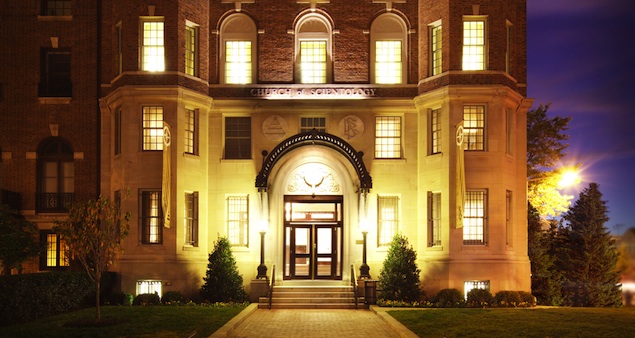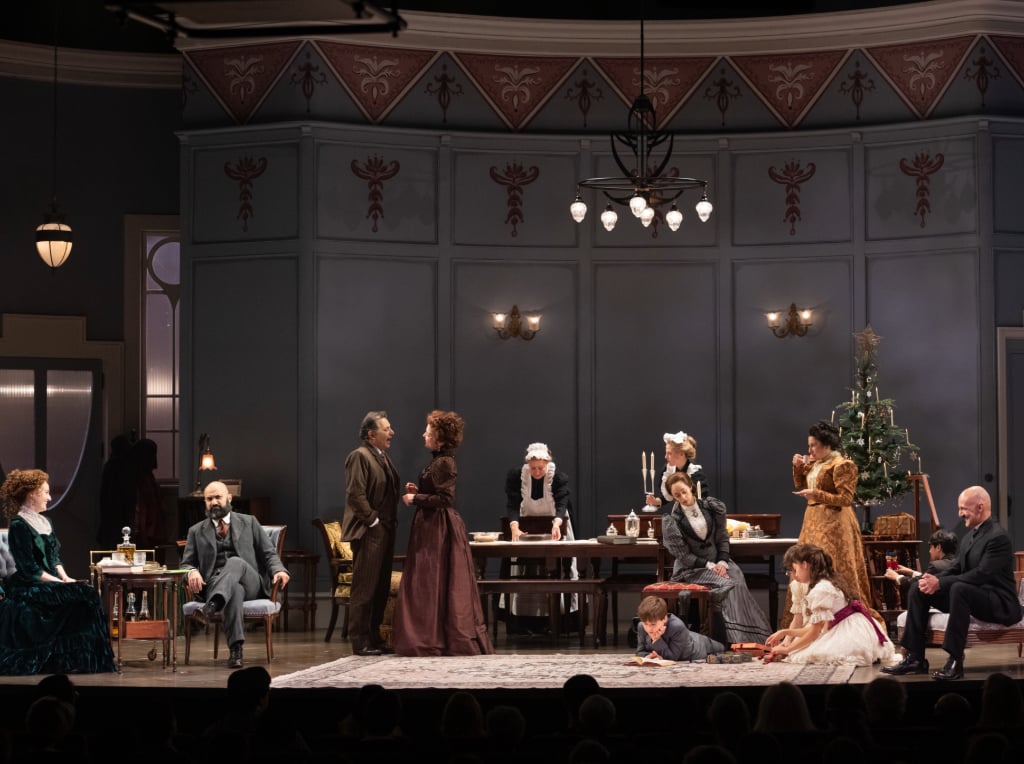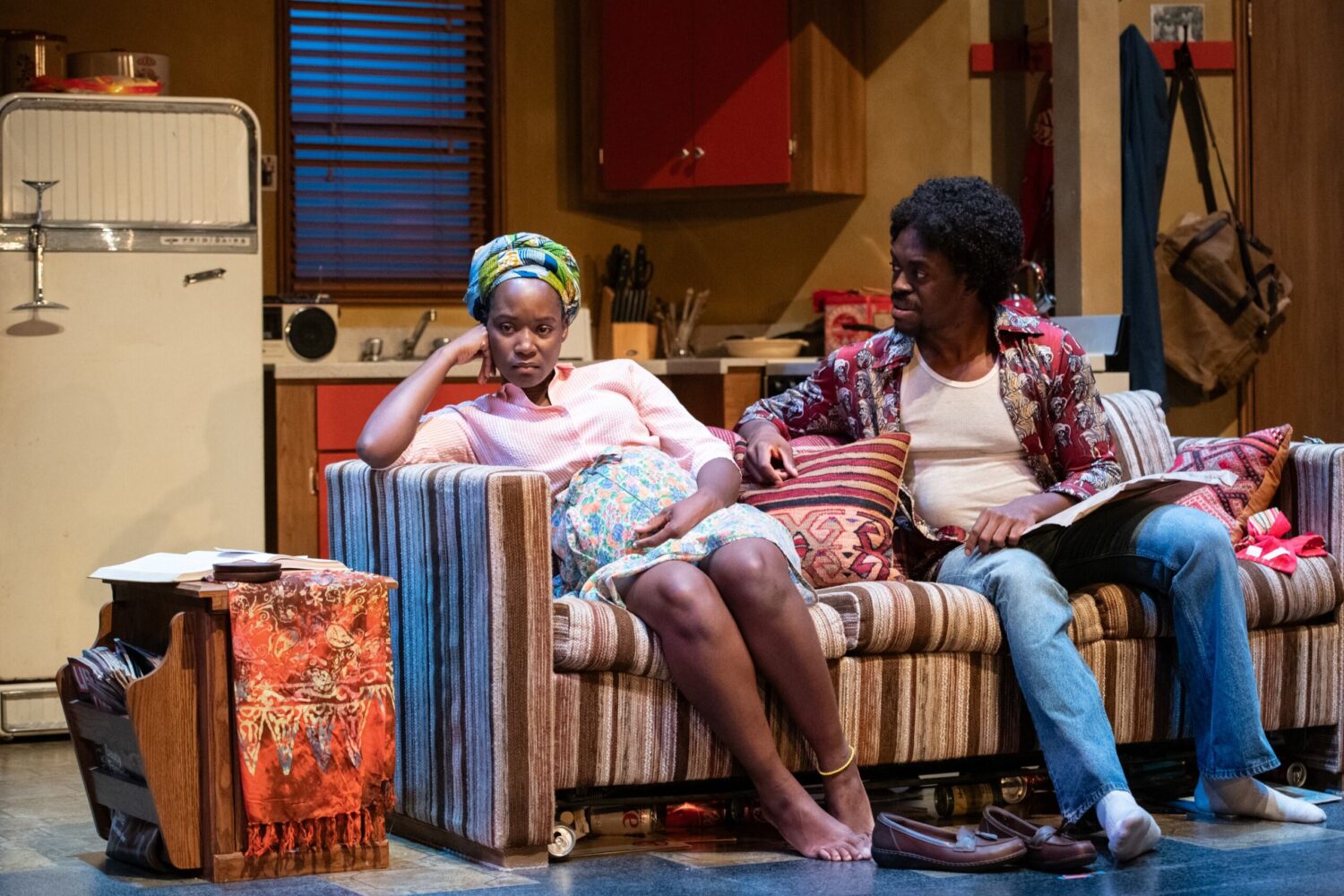If the extensive Tinseltown real estate holdings and roster of proud
celebrity members
didn’t tip you off, the Church of Scientology seems to have a
bit of a thing for aligning
itself with Hollywood glamour, and its fully loaded Washington
outpost is no exception.
The 16th Street Scientology Center, which made waves when it
opened in 2009 thanks
to its curious name (“Ideal Org”) and the traffic snarls it
caused,
hosted a performance by the L. Ron Hubbard Golden Age Theater
Friday night. While
there was no Tom Cruise cameo, the free performance offered the
chance to see entertainment
industry fandom onstage—as well as a peek inside the
controversial (and litigious)
religion.
Upon entering the center’s pristine halls, guests were greeted by a table of grinning
volunteers who had each visitor fill out a personal information sheet (I opted to
just list my name and phone number and was still allowed through, though there were
lines for e-mail and home addresses and other information) and put on a nametag. After
navigating tables of brightly displayed books and materials for sale and plenty more
volunteers eager to chat, we were directed to an upstairs cafe room where an impressive
spread of free sandwiches and snacks was flanked by more tables carpeted in the works
of L. Ron Hubbard, Scientology’s revered founder. Most prominently placed were the
colorful stacks of volumes and audiobooks from Hubbard’s
Stories From the Golden Age, the subject of the night’s performance.
Before he released
Dianetics: The Modern Science of Mental Health—the contents of which would evolve into Scientology’s core tenets—in 1950, Hubbard
wrote pulp fiction stories in the ’30s and ’40s. The collection of 153 of those sci-fi,
fantasy, adventure, and Western tales was the shameless star of the evening.
Stories has its own theater company and, along with Hubbard’s other literary works, its own
publishing house. The Golden Age Theater’s website lists scores of actors and actresses
(mostly unknowns, though some recognizable character actors and
Mad Men’s
Elisabeth Moss stood out—really, Peggy? Never would have guessed) who perform the stories in the
company’s signature nostalgic radio style in Hollywood and in appearances across the
country. Friday’s one-night-only show was based on Hubbard’s “Tough Old Man,” originally
published in the November 1950 issue of
Startling Stories magazine.
The performance started about a half an hour late, I assume to provide for maximum mingling
time in the cafe, and even then the actual acting didn’t get underway until after
John Goodwin, head of Hubbard’s fiction publishing house, Galaxy Press, gave a lengthy presentation.
Goodwin’s introduction felt like a bizarre extended infomercial, only instead of Wax
Vacs or Stompeez it was for the
Golden Age stories and audiobooks and how mythically badass Hubbard apparently was.
The performance itself wasn’t bad; in fact, the three performers were talented and
entertaining. Structured as an old-time radio show in the vein of
Gunsmoke or
Abbott & Costello, and complete with retro mikes, the staged reading followed a trainee named Moffat
assigned to legendary senior constable Keno Martin on Frontier Patrol service on a
distant planet. No one has survived the old officer’s intense instruction before,
but Moffat is determined, even as she uncovers that Keno is not what he seems.
Only narrator
Gino Montesinos was credited in a pre-show press release, touted as having “supporting roles in
Collateral,
Cellular, and
Bruce Almighty,” though a cross-check with IMDB would suggest all three of those were uncredited
(and they left off his work on 2004’s
SpongeBob SquarePants Movie). Which is not to say Montesinos is untalented. He has a solid stage background,
and his expressive face and strong voice gave the performance steady energy and as
much depth as a sci-fi pulp fiction piece can probably have. But the lofty Hollywood-praising
description fit right into the golden age of stage and screen worship that permeated
the evening. As Keno, actor and director
Skip Harris was goofy and charming. The actress playing Moffat was also impressive, able to squeeze
some engaging action and adventure out of the script without leaving her mike. The
material was hardly Shakespeare, but it was fun, albeit silly, with some
Twilight Zone-esque echoes. And the bare-bones radio format, combined with supporting sound effects
and basic lighting, was an original and entertaining twist.
Everyone I interacted with at the Scientology Center was friendly—sometimes overly
so—and the building was beautiful (the bathrooms were especially gleaming). In fact,
I didn’t get much sense of the Scientology belief system at all, as the night was
focused solely on Hubbard’s fictional works (however, if you consult Wikipedia,
there’s not that much daylight between the two). What was unsettling was the smothering
commercial quality, the focus on selling both the stories and Hubbard himself, that
hung over the event—the actors performed on a stage beside a giant bust of the founder
in case the rest of the evening didn’t get the point across.
If the Golden Age Theater was in fact trying to celebrate these classic stories through
live performance, I could have classified my evening as enjoyable and even enlightening.
But the push to jump on the L. Ron Hubbard bandwagon (complete with questionnaires
and donation forms on every seat that posed checklists for you to do as an “LRH fan”
such as posting online reviews about his stories and “work[ing] with your local libraries
and schools to get them using LRH’s fiction”) made it clear old sci-fi wasn’t the
only thing the Golden Age Theater was trying to promote.
















